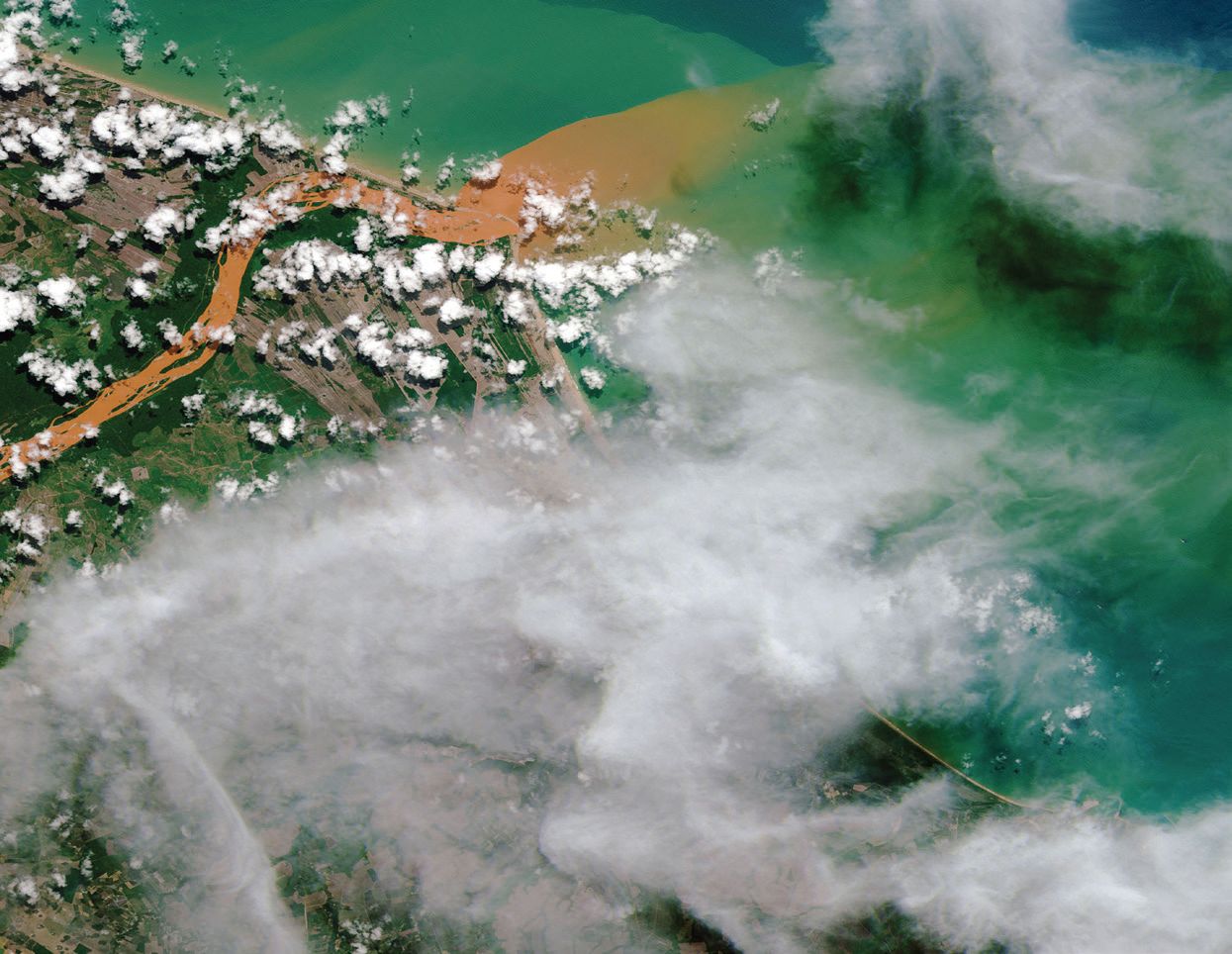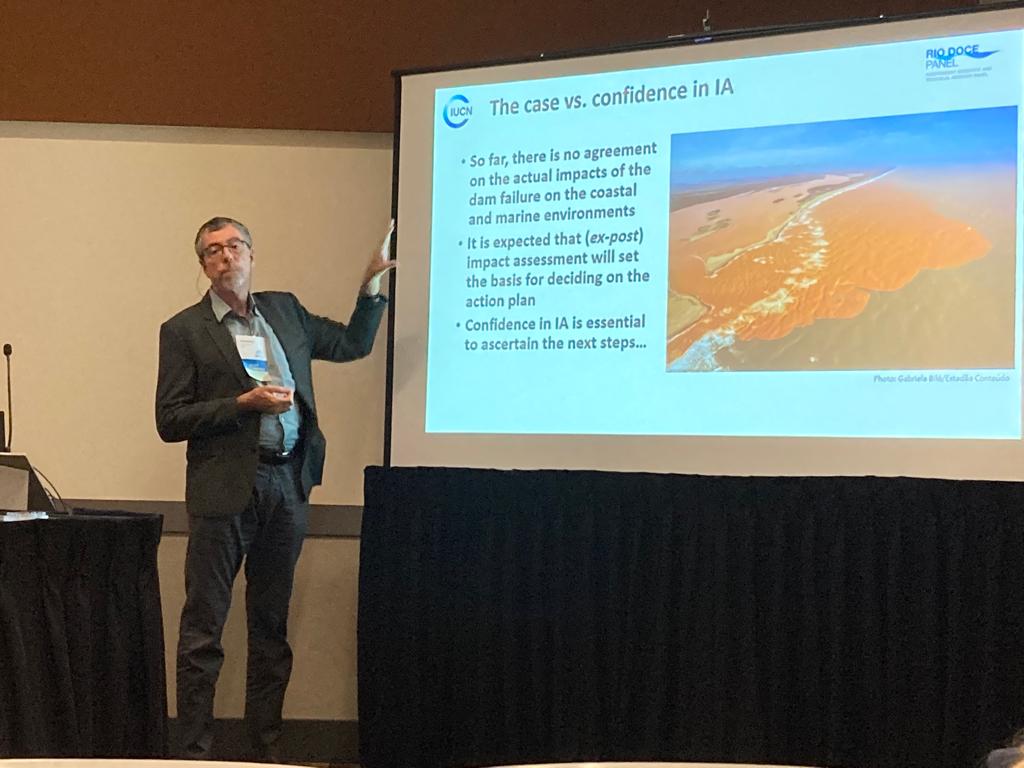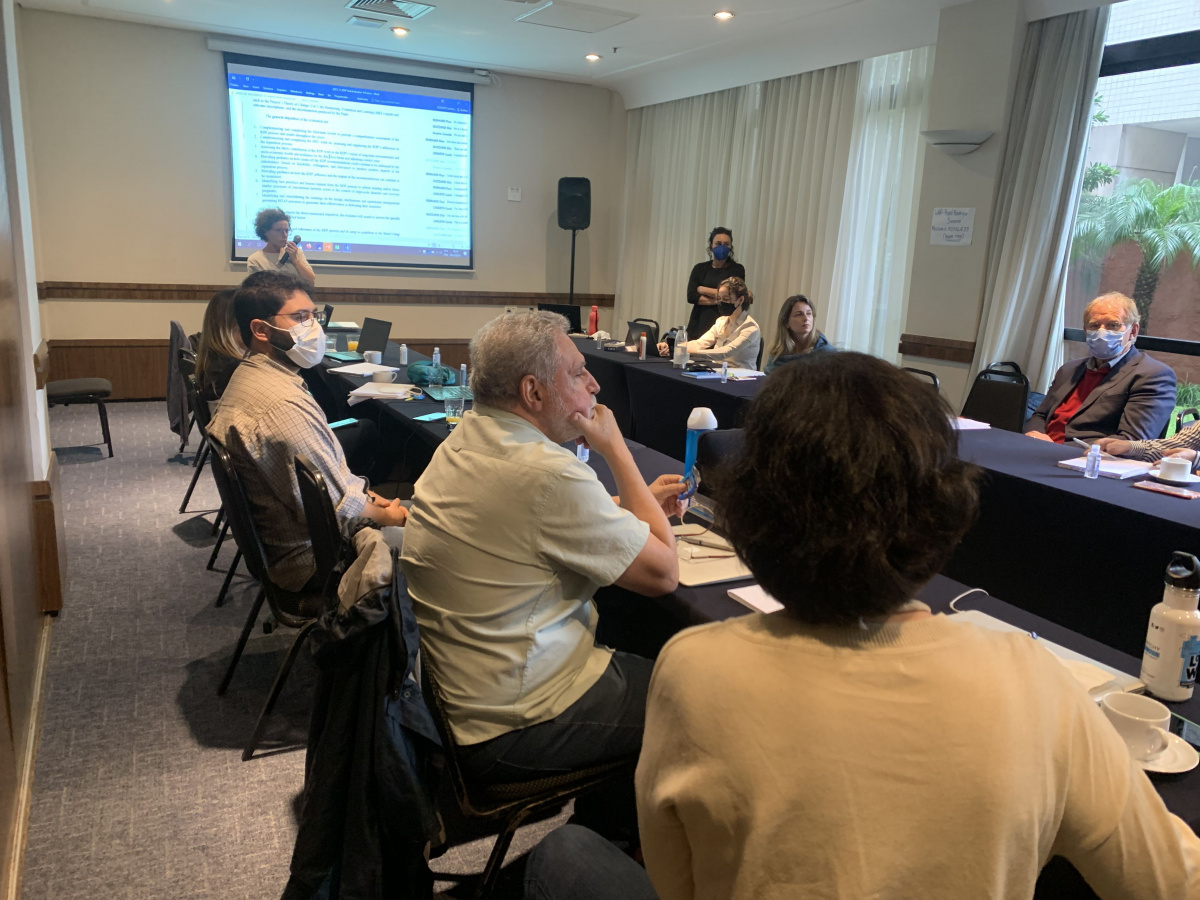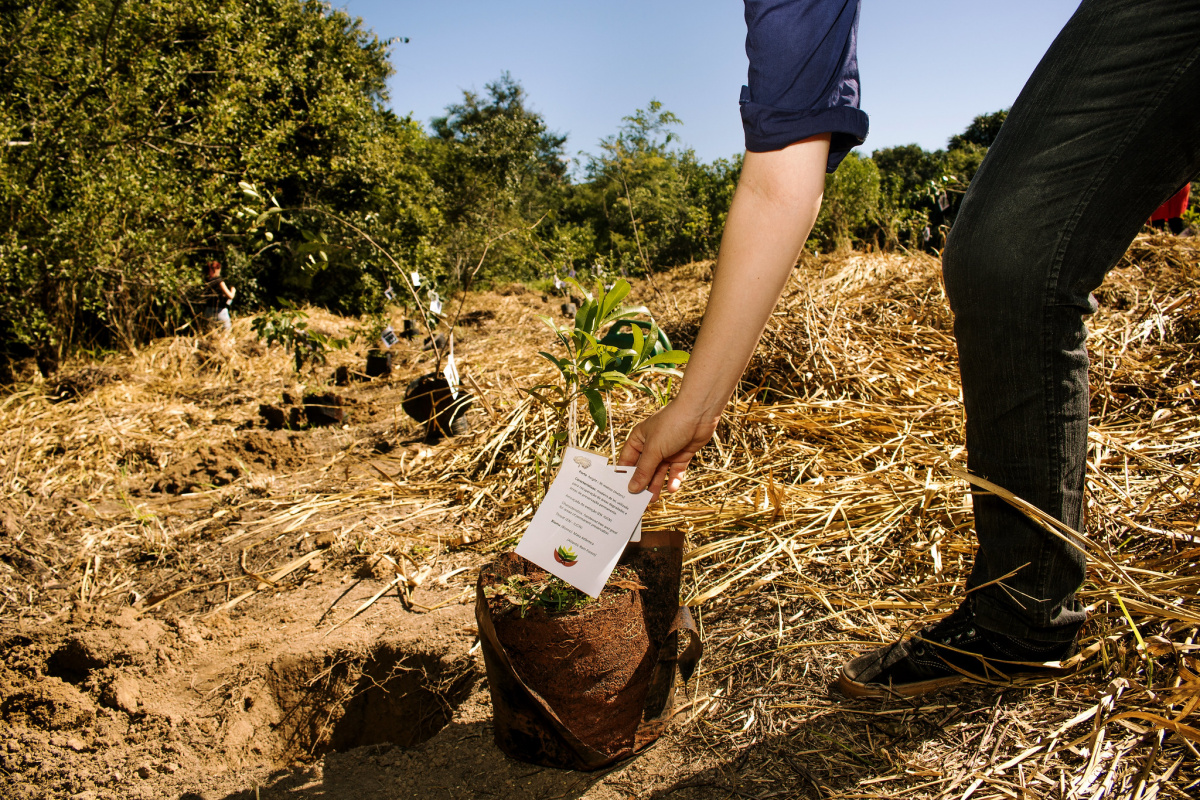Rio Doce Panel report outlines critical gaps and measures for region’s long-term restoration
Belo Horizonte, Brazil (IUCN) – Following one of Brazil’s worst environmental disasters, the IUCN-led independent Rio Doce Panel released its first report, outlining critical gaps and measures that need to be addressed for the long-term restoration of the watershed and the millions of people who depend on it for drinking water, food and jobs.

Photo: @Joshua Stevens/NASA Earth Observatory
The Renova Foundation currently implements 42 programmes aimed at helping the affected communities and ecosystems recover from the 2015 Samarco Fundão Dam failure. However, the Rio Doce Panel, established at the request of Renova, found that a comprehensive assessment of the social and environmental impacts from the dam failure is still needed to establish a baseline for measuring progress towards a more sustainable legacy in the basin, which was already degraded before the accident occurred.
In addition, the panel’s report, Impacts of Fundão Dam failure: A pathway to sustainable and resilient mitigation, suggests that the Renova Foundation carry out an integrated evaluation of the restoration programmes underway, and address any potential threats to their expected outcomes, such as climate change and those that stem from the way the natural resources in the area have been used in the past.
“The Rio Doce Panel’s first report is based on a year of on-the-ground observation and study to determine how to strengthen the current restoration and rehabilitation efforts in the affected watershed and coastal zone, and to identify measures that will help ensure a more sustainable and resilient legacy for future generations,” says Yolanda Kakabadse, chair of the independent Rio Doce Panel.
“The collapse of the tailings dam wrought havoc for 650 km across two states, tragically killing 19 people, destroying towns, and impacting aquatic fauna, vegetation, agricultural land and the sea. Nearly three years on, there is still a tremendous amount to be done. But there is also an opportunity to restore and improve the environmental quality and well-being of the affected populations,” she added.
The analysis conducted by the Rio Doce Panel resulted in seven recommendations. It suggests that Renova take an adaptive management approach as well as develop and implement a data and information sharing plan. It also calls for more action by governments, citizens’ groups and private organisations to urgently address widely-recognised problems, such as sewage treatment and afforestation.
Renova Foundation Director-President Roberto Waack welcomed the report and reconfirmed his support for the panel’s approach.
“The Renova Foundation is only one actor in the region addressing these challenges. Once its programmes mitigating the impacts of the dam failure are satisfactorily delivered, their positive outcomes will need to be sustained and enhanced, and this will require much broader participation and uptake by all of the stakeholders in the region,” says Mr Waack.
“The first Rio Doce Panel report addresses the key issues in a comprehensive way, while putting forward more immediate recommendations that the foundation can consider to ensure its programmes are as robust and effective as possible.”
The Rio Doce Panel comprises international and national experts, who bring diverse technical skills, academic qualifications and local knowledge. Among them, Yolanda Kakabadse, chair of the Rio Doce Panel, is the former Minister of Environment of Ecuador and former President of IUCN. The report’s lead author is Luis E. Sánchez, PhD, Professor of Mining Engineering at Escola Politécnica, University of São Paulo.
Notes to editors
For more information about the Rio Doce Panel, please visit the website.
To view the report, download it here in English or Portuguese.
To set up interviews, please contact:
Leigh Ann Hurt, IUCN Business and Biodiversity Programme
Tel: +41 22 999 0113, Mobile: +41 76 625 4227, leigh-ann.hurt@iucn.org; Web: http://iucn.org



